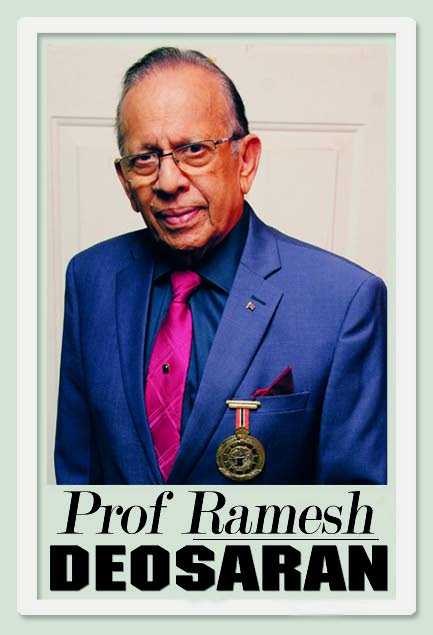Protests, politics and 1990

Last week, as commentaries ran right, left and centre about the violent July 27, 1990 Muslimeen insurrection, we also had widespread burning of tyres, roadblocks, angry drivers, and “fed up” protesters across the country.
It seemed to be reminders of the 1990 protests and unrest.
Pastor Clive Dottin said: “If we are not careful, history can repeat itself.”
Well, not exactly.
Now, the gun-loaded insurrection against Parliament was wrong and obviously excessive. The deaths, injuries, looting, kidnapping, costs and the severe blows to then prime minister ANR Robinson were all wrong.
But whether we make a movie or not, a museum or not, several sober-minded citizens worry whether the country’s leaders have learnt the required lessons from 1990. Hence Archbishop Jason Gordon’s sermons against spitefulness, unfairness, indiscipline and disrespect.
Government should act so as to prevent citizens from being overly frustrated and angry, especially when affected citizens feel discriminated against.
It sounds dutiful for beleaguered Minister of National Security Fitzgerald Hinds to criticise the protesters or call the police for them; or Works Minister Rohan Sinanan claiming the road protests are “politically motivated.” Even if so, all the more reason to fix them or provide credible reasons.
It is the government that has made these issues “political.” In the midst of such ministerial deflections, it is at the very beginning the pressing matter of efficient and effective political management. Broken roads, collapsed drains and potholes are the responsibility of the Ministry of Works and the regional corporations.
The complaints and attached images are just too much to bear now. It is as if the municipal corporations are deliberately keeping citizens frustrated and creating growing anger and disgust against government and its ministers.
Some of the laws are already there, in the Municipal Corporation Act, but stubbornly ignored. Maybe we need the courts to reaffirm this once and for all. This will cost taxpayers, but it will also bring some ease to public grief. Life today seems becoming “nasty and brutish.”
Claxton Bay Taxi-Drivers' Association president Nizam Ali said they are “fed up with the potholes.” He added: “WASA dig up this road in three places and come back to dig it again and again.”
I really thought Public Utilities Minister Marvin Gonzales had solved this age-old, very irritating WASA problem.
Broken roads and deep potholes also damage commercial traffic, adding severe economic costs to the country.
Obviously angry at current conditions, Gary Aboud in his newspaper letter stated: “Then, as of now, we are being overrun with bribery, extortion, nepotism, and the misdirection of public funds by government officials. Every day we relive the violence of the 1990 attempted coup.”
We seem to forget that in 1990, while bureaucratic delays and political gamesmanship were being played out between the PNM Port of Spain City Corporation and the NAR central government over the Muslimeen’s land occupation at Mucurapo, tensions dangerously erupted. As political management failed, the police and army found themselves occupying the Mucurapo land, much to the protests by the Muslimeen. (See A Society Under Siege, 1993)
Where the government repeatedly fails in its public policy, for example with broken roads, potholes and drains, the police get drawn into clashes with frustrated citizens.
The police themselves must understand this dilemma. This is a different case from murder, stealing or domestic violence. As wrong as it may be, the burning of tyres and road-blocking arise first of all from the repeated failures to fix roads, potholes, drains and bridges.
Much of this police confrontation therefore emerges from a breakdown in government policy and performance. Citizens, poor and rich, repeatedly complain that their pleadings to the authorities, particularly the regional corporations and ministries, have been repeatedly ignored.
PM Rowley and Cabinet as a whole should call on the relevant municipal corporations and ministers Faris Al-Rawi and Sinanan to do the right thing fairly and properly.
Grassroots democracy should also come alive with PNM party members – from Moruga, East Port of Spain, Couva to Barrackpore and Diego Martin – calling upon their PNM government to do the right thing.
That is how a healthy democracy is supposed to work. It didn’t happen before July 27, 1990. It must happen now. Like food production, bad roads affect all parties, making it a national problem. Not merely a “political problem.”


Comments
"Protests, politics and 1990"